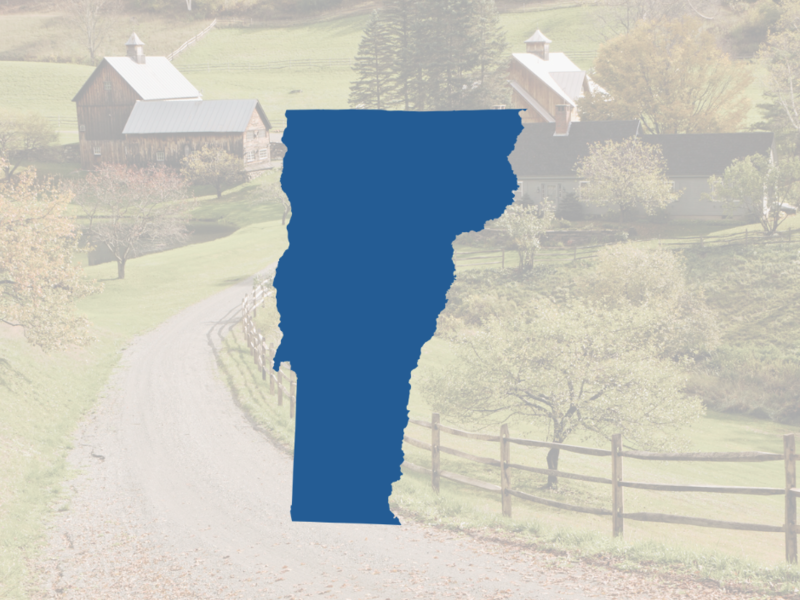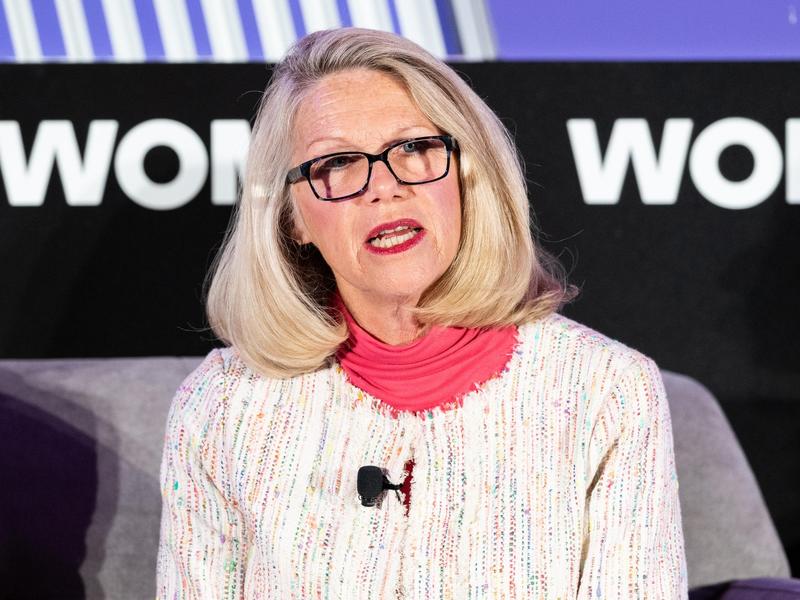
It's hard to think of a politician who has undergone a bigger evolution over the past four years than South Carolina Senator Lindsey Graham. But could that very political makeover hurt him at the ballot box in 2020, even in a reliably red state?
Once a thorn in the side of many in the GOP for his support of immigration reform — which earned him the nickname "Lindsey Grahmnesty" back home during his 2014 campaign — he was known as the fellow maverick sidekick of Arizona Sen. John McCain. Graham launched his own quixotic presidential bid in 2016, and lambasted then-candidate, Donald Trump, calling him "unfit for office," a "nutjob" and a "loser as a person."
But four years later, the Senate Judiciary Committee chairman has emerged as one of President Trump's fiercest defenders and a typically loyal ally, especially when it came time to confirm President Trump's Supreme Court nominees. In 2018, Graham — who had voted for Justices Kagan and Sotomayor — especially bristled at the treatment that Brett Kavanaugh got during hearings as he was accused of sexual assault in high school by Christine Blasey Ford, which Kavanaugh vehemently denied.
South Carolina Republicans point toward that incident as igniting his vitriol toward Democrats he used to often find common ground with. Such a rapid remake may have endeared Graham to conservatives in the state who were long skeptical of his bona fides — more from his public statements than solely his voting record, which remained very conservative. And he has gone from being censured and booed by county parties to welcomed as a hero.
But has it also alienated moderates and more conservative Democrats in the state who previously pulled the lever for Graham? There's some evidence that it might have. That's a key path likely challenger Jaime Harrison, the state's former Democratic Party chairman and a DNC associate vice chairman, is pursuing in his long-shot effort to knock off Graham. This is in addition to trying to register and motivate the state's sizable African-American voting block, which is around 28 percent of the electorate.
Harrison has a unique story to be able to reach both black voters and potentially peel off former Graham voters, especially white college-educated women that were Republicans' Achilles heel in 2018. That combination can be targeted with his money and could make this race a closer one than the state's seen in over 20 years.
Born to a single mother in impoverished Orangeburg, Harrison was raised by his grandparents. He went on to attend Yale University and Georgetown Law School. In between those two, he taught at his old high school and worked with an organization to help low-income students attend college. Then he moved to D.C. to work for Rep. Jim Clyburn, serving as his floor director when the longtime congressman first became Majority Whip after Democrats captured the House in 2006. He also lobbied for the Podesta Group — a tie Republicans are eager to highlight — before returning home again to South Carolina. In 2013, he was elected chairman of the South Carolina Democratic Party, the first African-American ever to hold that post. In 2017, he made a failed bid to be DNC chairman, dropping out to endorse eventual winner Tom Perez. He did get a slot as the national committee's associate chairman, though.
Most impressively, Harrison had a record-setting fundraising haul during the first quarter of this year, bringing in $7.37 million to Graham's $5.68 million (which also would have set the record for the most raised in a quarter in the Palmetto State before Harrison eclipsed it).
Both candidates raised most of their cash from out of state — Graham around 80%, compared to about 92% for Harrison, according to our analysis of FEC reports. And Graham's campaign points out that he suspended fundraising amid the pandemic for the closing weeks of the quarter. The incumbent also still has a cash on hand advantage of about $4.8 million over Harrison.
Graham's political skills should not be underestimated, and he's clearly taking this race quite seriously, as he should. However, we also can't overlook the considerable resume that Harrison also brings to the race, and even South Carolina Republicans admit he is a strong candidate.
One GOP operative in the state told me those fundraising numbers from Harrison's campaign have left Republicans in the state "stunned" and that it is absolutely on track to be the most expensive race in South Carolina history, expected to top upwards of $40 million.
"He's a very dangerous candidate to Sen. Graham," the Republican strategist said, calling Harrison "the best Democratic candidate I've seen here in a very long time."
Others, understandably, remain skeptical, even given Harrison's strengths.
"I just don't think the math works out in Jaime's favor at this point," another South Carolina GOP strategist said. However, the operative did admit that "Lindsey is going to have to work harder than he ever worked before," but that "Jaime would have to run a perfect race, and Lindsey would have to make a lot of mistakes" to win.
Harrison's compelling ads highlight his early biography. He's used his money to run positive spots in every major media market in the state, talking about the challenges his grandparents faced trying to make ends meet in the state's "Corridor of Shame," eventually losing their home; Harrison eventually buys them one. Notably, though, his ads don't mention his party.
Meanwhile, the likely Democratic nominee has been largely unanswered on TV. Graham's campaign has only spent on digital ads so far, but Security is Strength PAC, which is supporting Graham, has been up on TV with two ads, and has already reserved $1.6 million in the weeks leading up to Election Day. One ties Harrison to "The Swamp," with images of Nancy Pelosi, Chuck Schumer, Hillary Clinton and Bernie Sanders, while another highlights his work with the Podesta Group. Of course, with Joe Biden as the presumptive nominee, those ties to the Bernie-wing of the party could be much harder to make. However, Republicans will still seek to link Harrison, naturally, to Democrats writ large, in a state Trump won by just over 14 points in 2016, improving on President Obama's much closer showings in 2008 and 2012.
Graham's campaign has only spent on digital ads so far, but his heavy media presence, especially on Fox News, of course, endears him to Republican voters.
Graham has easily won re-election — and even easily dispatched ballyhooed primary challenges — since he was first elected to the Senate in 2002, after serving ten years in the House. In general elections though, Graham has easily beaten back weak Democrats who had virtually no cash — in 2008 against Bob Conley (who only raised $17,000) the GOP incumbent won by 15 points, while in the strong GOP year of 2014 against Brad Hutto (who brought in less than $525,000), Graham won by almost 18 points.
But this time around, can a robust, well-funded campaign be enough to put this race in play, in a state that hasn't elected a Democrat to the Senate since 1998? South Carolina remains a solidly red state across the board — save for a blip of hope in 2018 when Democrat Joe Cunningham flipped the 1st District, which will be a House battleground yet again.
When you dig into the demographics and trends of the Palmetto State, there are hints of change. Charleston, where Cunningham made his upset last cycle, has been home to many retirees from out of state, and its Republican politics lean more moderate (one reason why the conservative Katie Arrington, who ousted former Gov. and Rep. Mark Sanford in the primary, ultimately failed in the general). It's also one of the fastest-growing states in the country, largely from people moving to the state from other places.
And looking at the Democratic presidential primary results, there are other encouraging signs for Democrats, where massive turnout that nearly matched 2008 levels propelled Biden to a crucial victory that resurrected his campaign and ultimately sealed his nomination.
As the Washington Post analyzed, the biggest upticks from four years ago were in the traditionally conservative Upstate, but where industries like BMW, Michelin and a vibrant downtown have seen more well-educated and younger families settling down; in Charleston and Columbia; and in Rock Hill/York County, which have become a fast-growing outpost of the Charlotte suburbs across the border. Overall, "precinct-level analysis by The Post shows that while statewide turnout increased by about 40 percent over 2016, the parts of the state that saw the largest spikes were the most white and upper income."
Now there was no Republican primary at all in 2020, while there was a hotly competitive one in 2016, and many of those same voters likely pulled a Democratic ballot this time around. But Democrats, who had little good news in the state for a long stretch, are rightly enthused. And the fact that the 1st District, which the Cook Political Report rates as a Toss Up, will attract plenty of money and attention — and that Cunningham has performed strongly even in a red district — could also help to boost Harrison in an important part of the state.
According to one South Carolina Democratic strategist, focus groups conducted in other parts of the state have produced similar feedback that Harrison's campaign also points to — growing unrest with Graham among white, college-educated women especially.
"The win in the 1st District opened people's eyes, so they saw it was possible," the Palmetto State Democrat said. "Folks in the Charlotte suburbs and South Carolina Republicans who aren't Trump Republicans are turning and looking for an alternative."
Still, the Democrat cautioned that Harrison also has to walk a delicate line of not criticizing Trump too much, but presenting himself as more of a check on the president, according to focus groups.
Harrison's internal poll, conducted by veteran Democratic pollster Cornell Belcher from March 3-11 (804 LV, 3.8 MoE), found Harrison only trailing Graham by 4 points, 47%-43%, and the incumbent senator at just 45% job approval. That's certainly a far rosier picture than reality, and Democrats in the state know well that those last few points are what remains so tough. Other public polls in February, from Both Marist College and East Carolina, gave Graham far larger leads of 17 and 13 points, respectively, when testing registered voters. But Republicans and Democrats alike know the world and politics have changed drastically since February and even since Biden's South Carolina victory two months ago, and it's shifted in Democrats' favor.
There are considerable obstacles that remain for Harrison. Still, he's clearly putting together a savvy campaign that's going to be backed by plenty of money to communicate his message, which is something other Graham challengers have never been able to muster. And the private praise he is getting from Republicans — and a tinge of worry he's stoking — shows this will clearly be Graham's toughest re-election effort yet.
When we look at this race, it's clear it's no longer one that is being ignored by either party. And our definition of a race that is "Likely Republican" is simply a race that is "not considered competitive at this point, but [has] the potential to become engaged." This race fits that criteria, though there is still needs to be a lot more to be done — and political winds that need to shift — for Harrison to have a real chance to flip it, and that may never happen. Still, it is a race that merits more attention in the larger Senate landscape, so we are moving South Carolina from Solid to Likely Republican.









Subscribe Today
Our subscribers have first access to individual race pages for each House, Senate and Governors race, which will include race ratings (each race is rated on a seven-point scale) and a narrative analysis pertaining to that race.